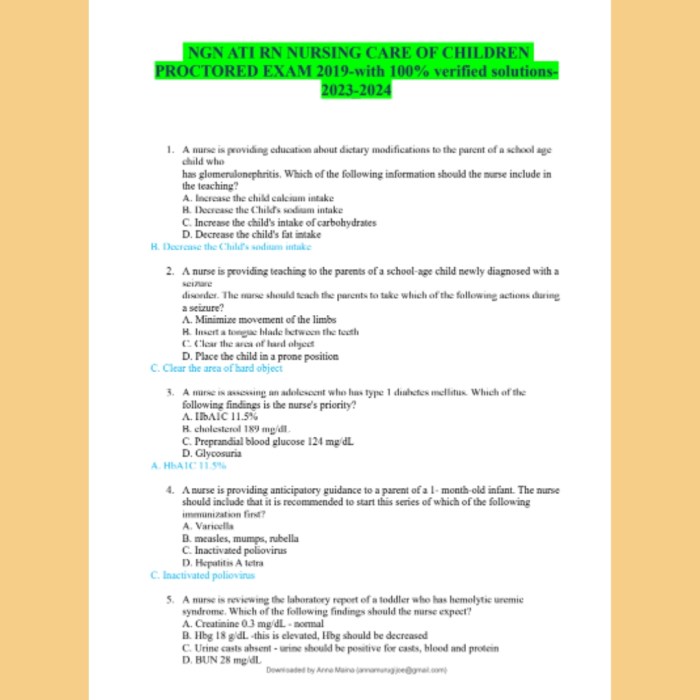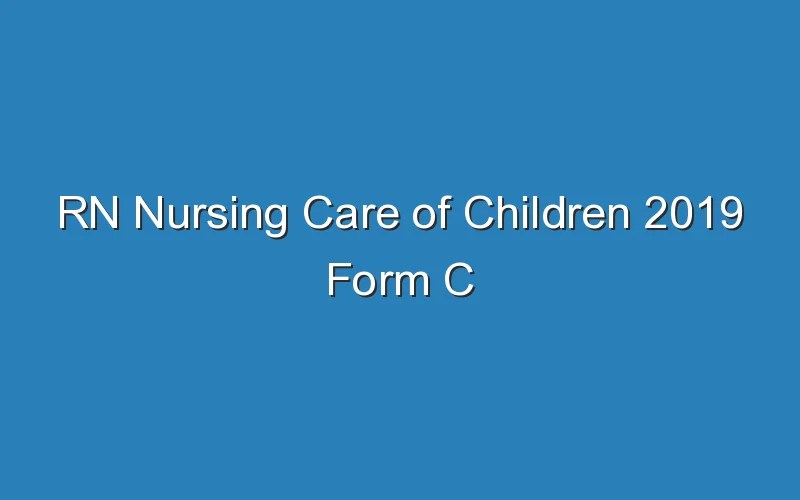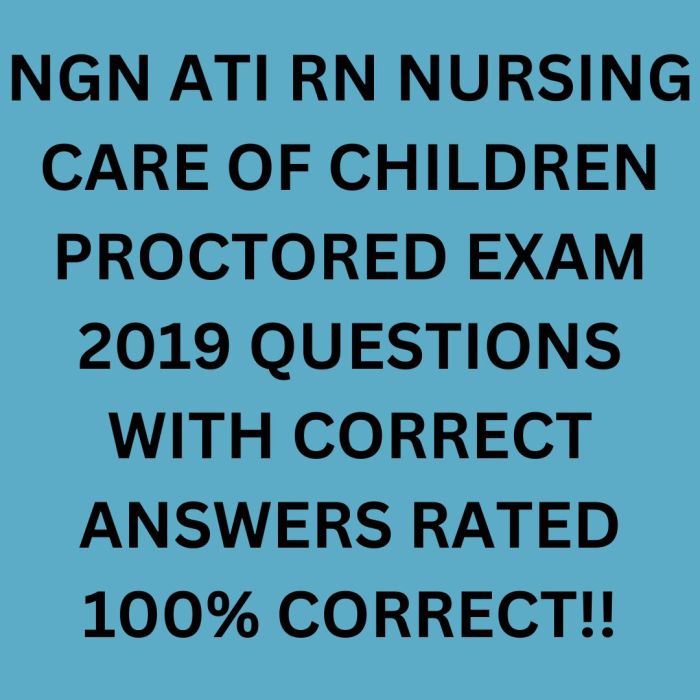RN Nursing Care of Children 2019 with NGN is a comprehensive guide to the latest advancements and best practices in pediatric nursing. This authoritative resource provides nurses with the knowledge and skills necessary to deliver exceptional care to young patients, addressing the unique challenges and opportunities of nursing children.
In this groundbreaking work, experts in the field explore the vital role of Nursing Genomics (NGN) in improving patient outcomes and reducing healthcare disparities. Evidence-based practices are meticulously examined, empowering nurses to stay up-to-date with the latest research and implement best practices.
Furthermore, the importance of interdisciplinary collaboration and ethical considerations in pediatric nursing are thoroughly discussed.
1. RN Nursing Care of Children
A Comprehensive Overview

RN nursing care of children encompasses a vast scope of responsibilities, catering to the unique needs and vulnerabilities of pediatric patients. Nurses play a pivotal role in promoting health, preventing illness, and providing comprehensive care for children from birth to adolescence.
Pediatric nursing presents distinct challenges and considerations, including age-specific physiological and developmental variations, the emotional well-being of both the child and their family, and the need for specialized interventions tailored to childhood conditions.
Specialized Nursing Interventions for Common Childhood Conditions, Rn nursing care of children 2019 with ngn
- Asthma Management:Implementing individualized care plans, administering medications, providing respiratory support, and educating families on symptom management.
- Diabetes Care:Monitoring blood glucose levels, administering insulin, teaching self-management skills, and providing nutritional counseling.
- Cancer Treatment:Providing supportive care, administering chemotherapy, monitoring for side effects, and collaborating with interdisciplinary teams.
2. NGN
A Vital Tool for Pediatric Nursing

Nursing Genomics (NGN) has emerged as a transformative tool in pediatric nursing, offering unprecedented insights into the genetic basis of childhood diseases and enabling personalized care.
NGN empowers nurses to identify genetic predispositions, predict disease risks, and tailor interventions based on an individual’s genetic profile. By leveraging NGN, nurses can improve patient outcomes, reduce healthcare disparities, and promote health equity.
Case Studies of NGN Implementation in Pediatric Nursing
- Early Detection of Cystic Fibrosis:NGN screening enables early diagnosis and prompt initiation of treatment, significantly improving outcomes for children with this condition.
- Personalized Treatment for Leukemia:NGN-guided therapy selection has led to improved survival rates and reduced side effects for children with leukemia.
3. Evidence-Based Practices in RN Nursing Care of Children

Evidence-based practice (EBP) is a cornerstone of RN nursing care of children. By integrating the latest research findings into clinical practice, nurses ensure that children receive care that is safe, effective, and supported by scientific evidence.
Staying up-to-date with research and implementing best practices is crucial for pediatric nurses to deliver optimal care and achieve the best possible outcomes for their patients.
Table of Evidence-Based Practices in Pediatric Nursing
| Condition | Evidence-Based Practice | Effectiveness |
|---|---|---|
| Asthma | Inhaled corticosteroids | Reduces airway inflammation and improves lung function |
| Diabetes | Continuous glucose monitoring | Improves glycemic control and reduces hypoglycemia |
| Cancer | Palliative care | Enhances quality of life and reduces pain and suffering |
Question & Answer Hub: Rn Nursing Care Of Children 2019 With Ngn
What is the significance of Nursing Genomics (NGN) in pediatric nursing?
NGN plays a crucial role in pediatric nursing by providing personalized insights into a child’s genetic makeup, enabling nurses to tailor care plans, predict disease risks, and optimize treatment strategies.
How does RN Nursing Care of Children 2019 with NGN promote evidence-based practices?
This guide emphasizes the importance of staying up-to-date with research and implementing evidence-based practices. It provides a comprehensive review of key evidence-based practices and their effectiveness in various pediatric conditions.
Why is interdisciplinary collaboration essential in pediatric nursing?
Interdisciplinary collaboration is crucial in pediatric nursing as it fosters a team-based approach involving nurses, physicians, social workers, and other healthcare professionals. This collaboration ensures comprehensive care that addresses the physical, emotional, and social needs of children.
